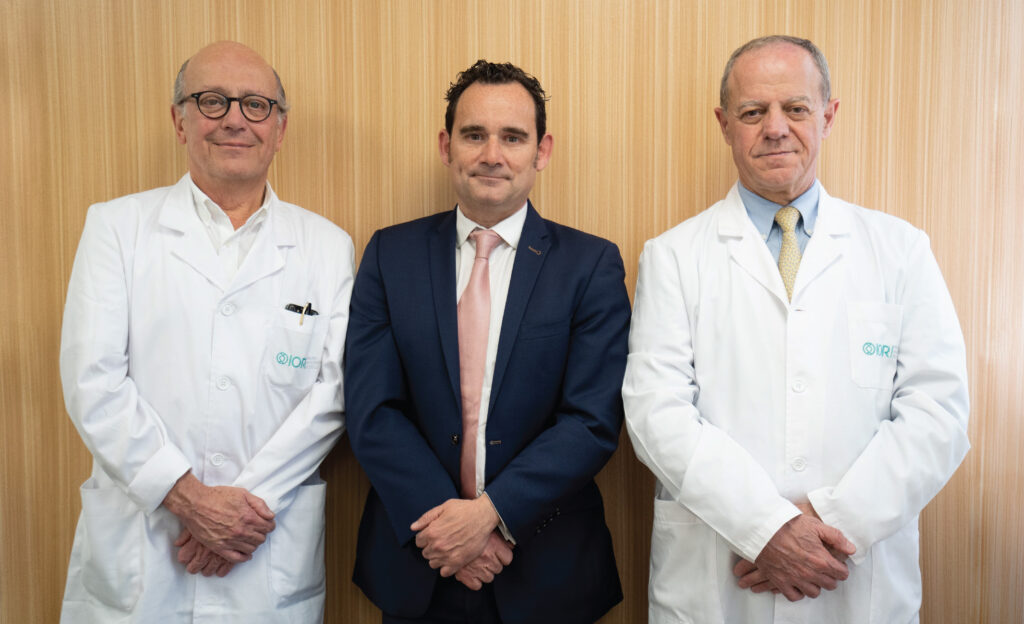
On the fourth floor of the Sagrat Cor Hospital in Barcelona, the HUSC Oncology Innovation Cancer Center will be established, a center that will concentrate three interrelated activities in the same space to combat cancer: medical assistance, innovation, and a unit for clinical trials to test innovative oncological treatments and devices. The center, covering an area of about 800 square meters, will be dedicated to private patients from medical insurance or individual patients, but will also provide some services within the concession that Sagrat Cor Hospital has with the Catalan Health Institute (ICS).
The new space, expected to open doors during the first semester of the year 2025, follows the model of large hospitals in the United States that combines medical super-specialization for each tumor with a research and innovation unit that feeds back into the care area. “Each patient will be treated by an oncologist specialized in their tumor, may receive innovative treatment, and will have knowledge of the genetic study of their disease. The era of treating all cancer patients equally has ended,” explains Joaquim Bellmunt, a Harvard professor, head of genitourinary at the Dana-Farber Cancer Institute in Boston (USA), and founder of NG Oncology, one of the two companies participating in the creation of the HUSC Oncology Innovation Cancer Center.
The center arises from the drive of NG Oncology and the medical services company Pangaea Oncology, which have closed a commercial agreement through which all NG Oncology physicians join the team of one of Pangaea Oncology’s subsidiaries (Instituto Oncológico Dr. Rosell, IOR), located on Calle de Londres in Barcelona, next to the Sagrat Cor Hospital. The IOR has been operating in this hospital since 2016 and is led by Dr. Lluís Cirera, an internationally renowned oncologist specializing in digestive tumors.
On the other hand, QuirónSalud, the group that owns Sagrat Cor Hospital, is the one providing the investment to make the new infrastructure a reality, the amount of which they have chosen not to disclose.
Pangaea Oncology, led by Rafael Rosell, president and scientific director, and Javier Rivela, CEO, has been listed on the Alternative Stock Market (MAB) since 2016. The company is dedicated to providing precision oncology medical services, with two areas of activity. An assistance area offered through different subsidiaries (Instituto Oncológico Doctor Rosell, Quenet Torrent Institute, the International Breast Cancer Center, Pectus Respiratory Health, and the IOB Institute of Oncology in Barcelona). And then it has the division of diagnostic and R&D services, both for its patients and for the pharmaceutical industry, from which the company provides molecular and in vitro diagnostic services to companies worldwide.
At present, Pangaea has over two hundred clinical trials underway, distributed among the different centers where it provides care and research, and starting next year, it will concentrate them in the new oncological center at Sagrat Cor Hospital. “This will be our reference technological hospital,” explains Javier Rivela.
Two years ago, Pangaea managed to raise 12 million euros in a financing round that was used to acquire reference medical companies and other clinical trials in Catalonia and to create new ones like the IBCC (International Breast Cancer Center).
Pangaea Oncology’s plans are ambitious: the company aspires to become one of the leading groups of medical care and innovation services around oncology, billing 20 million euros in the short term, 70% coming from the care part and 30% from innovation development and clinical trials. At present, the weight of each activity is approximately 50%.
In addition to the commitment to super-specialization in cancer patient care, Pangaea Oncology has its own area of technological development of minimally invasive diagnostic tools. Javier Rivela explains that one of the innovations they have in a more advanced stage is their own system for detecting lung cancer that they have already begun to validate with patients.
On the other hand, Pangaea is working on the development of systems for detecting any type of cancer through artificial intelligence and the use of algorithms that will allow identifying signs of the disease much earlier than is currently done with traditional systems.
NG Oncology, on the other hand, is a medical society founded in Sabadell by Joaquim Bellmunt that currently assists more than 1,500 patients and operates in the field of oncology. It is comprised of oncologists Pablo Maroto, Francisco Pelegrín, Amaya Ramírez, and Joaquim Bellmunt, a reference physician in bladder cancer.
PANGAEA ONCOLOGY. ALL RIGHTS RESERVED, 2024.
DESIGNED & PRODUCED BY SOTO BUSINESS PARTNERS